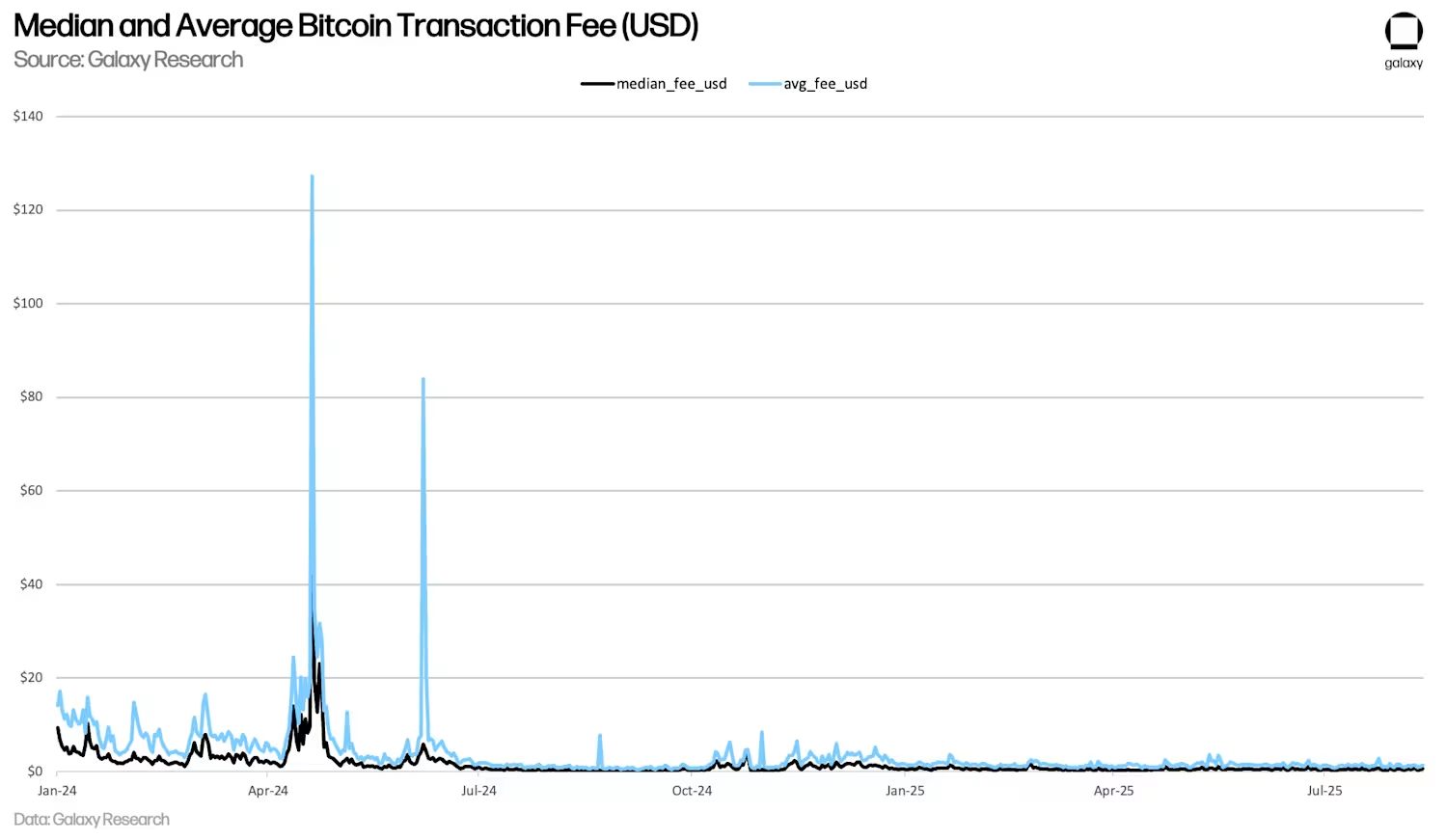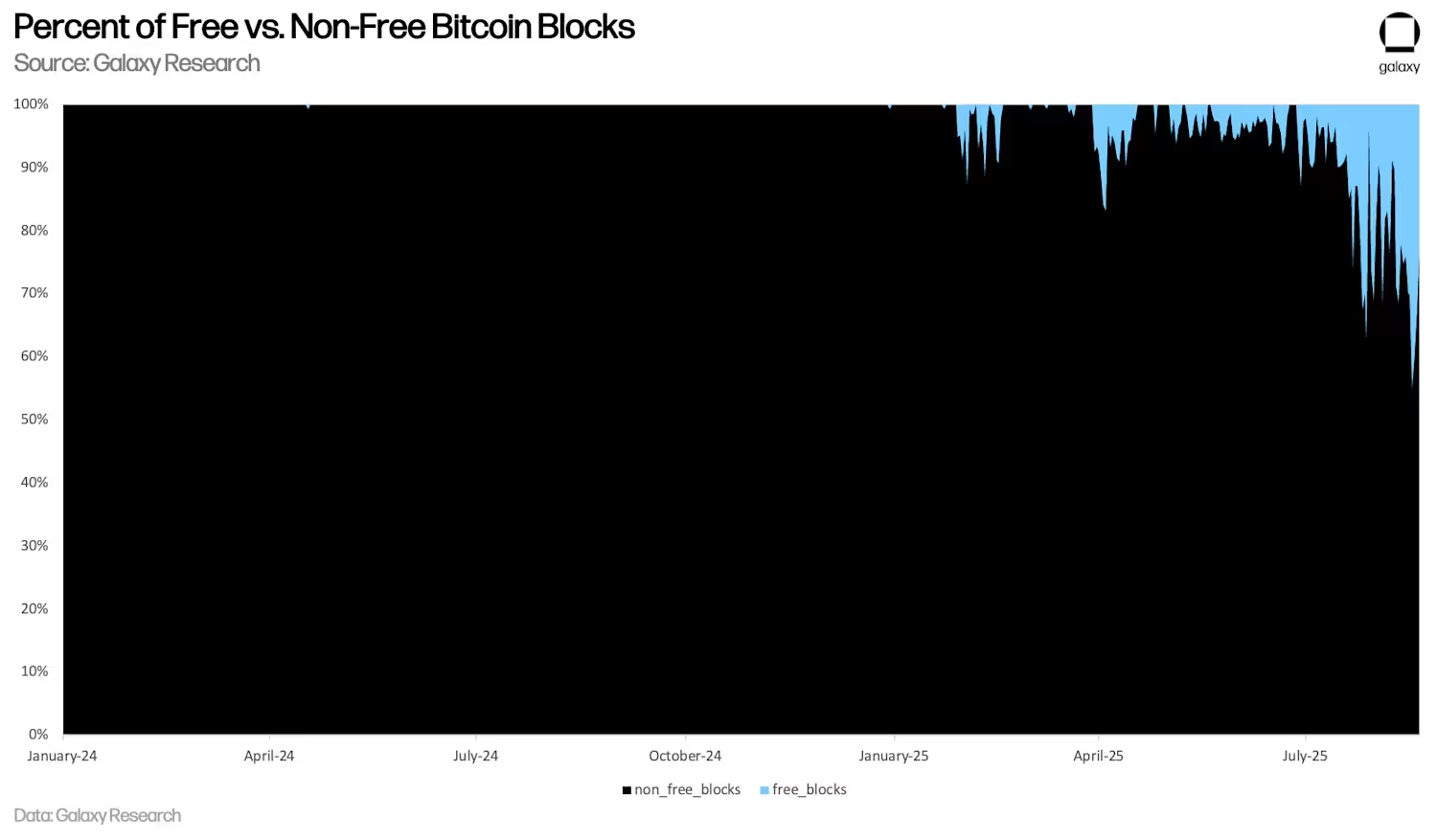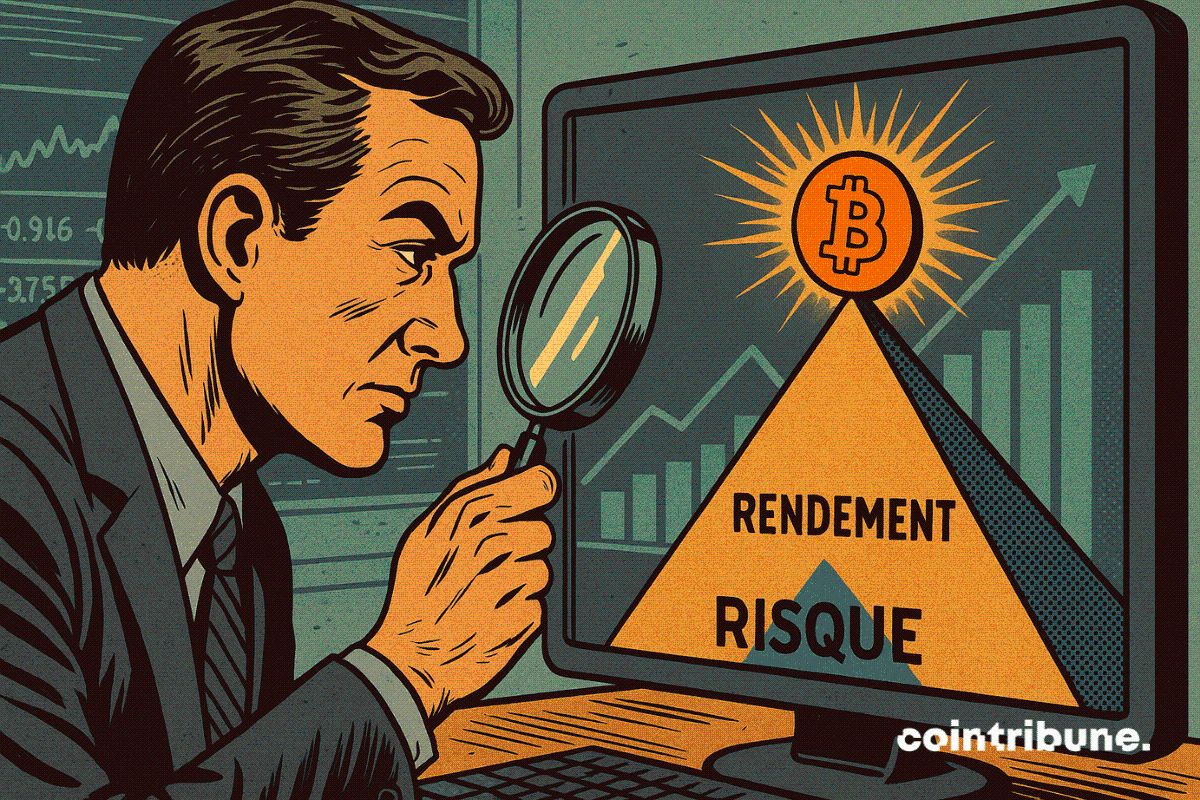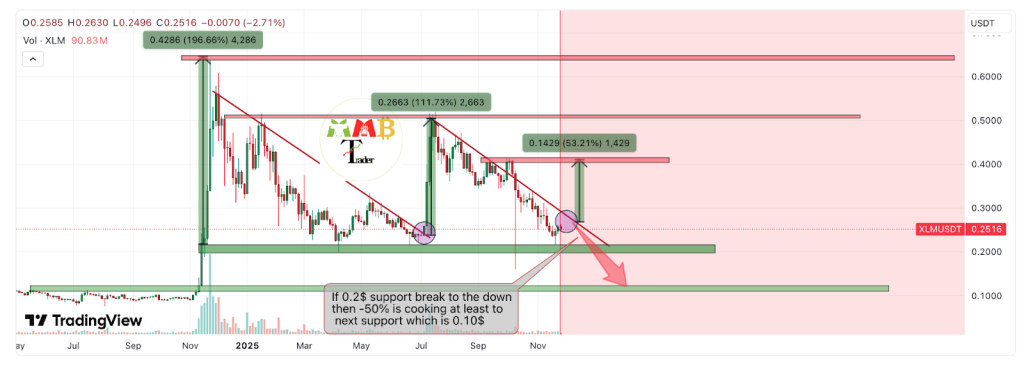Bitcoin faces a fee crisis that threatens network security: Can BTCfi help?
Daily transaction fees on the Bitcoin network have collapsed by more than 80% since April, according to a report from Galaxy Digital. As of August 2025, nearly 15% of blocks are “free,” meaning they’re being mined with minimal or no transaction fees, just one satoshi per virtual byte or less.
Lower Bitcoin (BTC) transaction fees benefit users but reduce miners’ revenue, raising concerns about the sustainability of the network’s long-term security model.
Bitcoin’s incentive structure relies on miners being compensated for their work through block rewards and transaction fees. But with the April 2024 halving cutting rewards to 3.125 BTC per block, miners are leaning heavily on the fee market, and it’s drying up.
“As block rewards shrink, more weight falls on transaction fees,” Pierre Samaties, chief business officer at the Dfinity Foundation, told Cointelegraph. “If usage does not grow, that base thins, and the guarantees weaken. Sustained throughput is essential for the system to defend itself.”

Related: Bitcoin 2025 builders predict DeFi will unseat traditional finance
Bitcoin onchain activity slumps
Bitcoin’s onchain activity has slowed significantly since the decline of non-monetary trends like Ordinals and Runes. Galaxy’s report notes that OP_RETURN transactions, used heavily during the 2024 Ordinals boom, now account for just 20% of daily volume, down from over 60% at their peak.
Meanwhile, alternative layer 1s like Solana are gaining traction for high-frequency use cases like memecoins and NFTs. Furthermore, the rise of spot Bitcoin ETFs, which now hold over 1.3 million BTC, has pushed more BTC volume offchain, limiting movement that would otherwise generate fees.
Bitcoin’s fee market is elastic by design, meaning that fees rise when demand surges and fall when activity slows. However, if demand continues to shrink, miners may be left with too little incentive to secure the network. Galaxy noted that nearly 50% of recent blocks haven’t been full, and mempool activity remains sluggish.

Against this backdrop, a new hope is emerging in the form of BTCfi, Bitcoin-native DeFi. Unlike DeFi on Ethereum or Solana, which uses smart contracts on those chains, BTCfi uses Bitcoin as the base asset while building financial applications like lending, trading and yield generation on layers or protocols that interact directly with the Bitcoin network.
“Every BTCfi action requires moving Bitcoin,” Samaties explained. “Movement drives computation, computation consumes block space, and space carries cost.” In other words, if BTCfi grows, so does onchain activity and fee revenue.
Related: The future of DeFi isn’t on Ethereum — it’s on Bitcoin
From digital gold to financial primitive
Samaties noted that Bitcoin has long been viewed as “digital gold,” a store of value more than a usable asset. However, he sees it evolving into something more foundational: a financial primitive.
“A financial primitive is a building block developers can use to design flows, tools, and logic,” he said. “In that role, Bitcoin becomes more than an asset to hold, it becomes a programmable component within broader financial systems.”
Julian Mezger, chief marketing officer of Liquidium, also said that infrastructure improvements are setting the stage for change. “The last five years have transformed Bitcoin's infrastructure from a simple settlement layer into a multi-layered ecosystem,” he said. “We’re now seeing the foundations for true Bitcoin-native DeFi being laid.”
Magazine: Bitcoin is ‘funny internet money’ during a crisis: Tezos co-founder
Disclaimer: The content of this article solely reflects the author's opinion and does not represent the platform in any capacity. This article is not intended to serve as a reference for making investment decisions.
You may also like
Do Kwon Wants Lighter Sentence After Admitting Guilt

Bitwise Expert Sees Best Risk-Reward Since COVID

Stellar (XLM) Price Prediction: Can Bulls Push Toward $0.30 in December?

21Shares XRP ETF Set to Launch on 1 December as ETF Demand Surges
